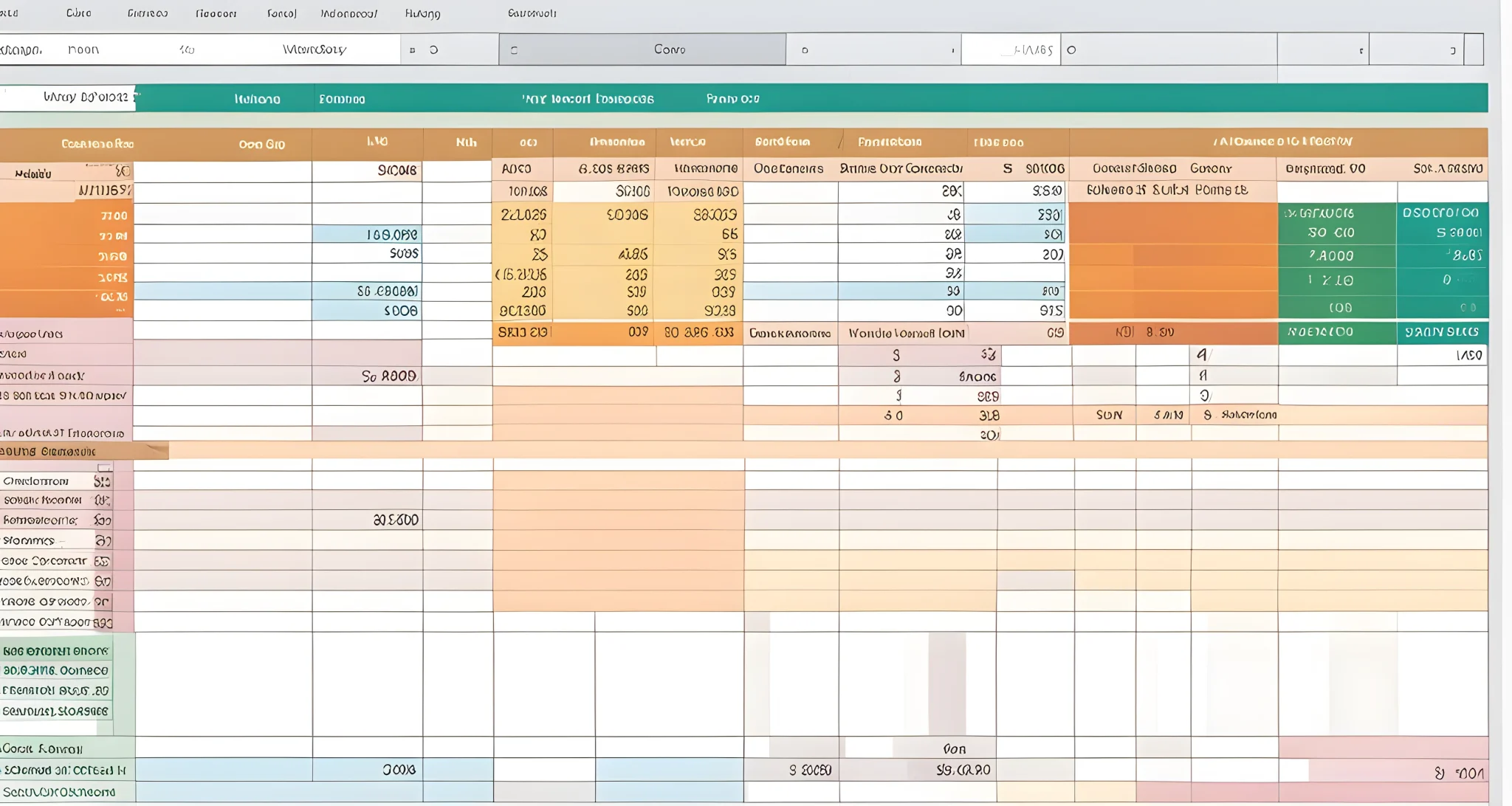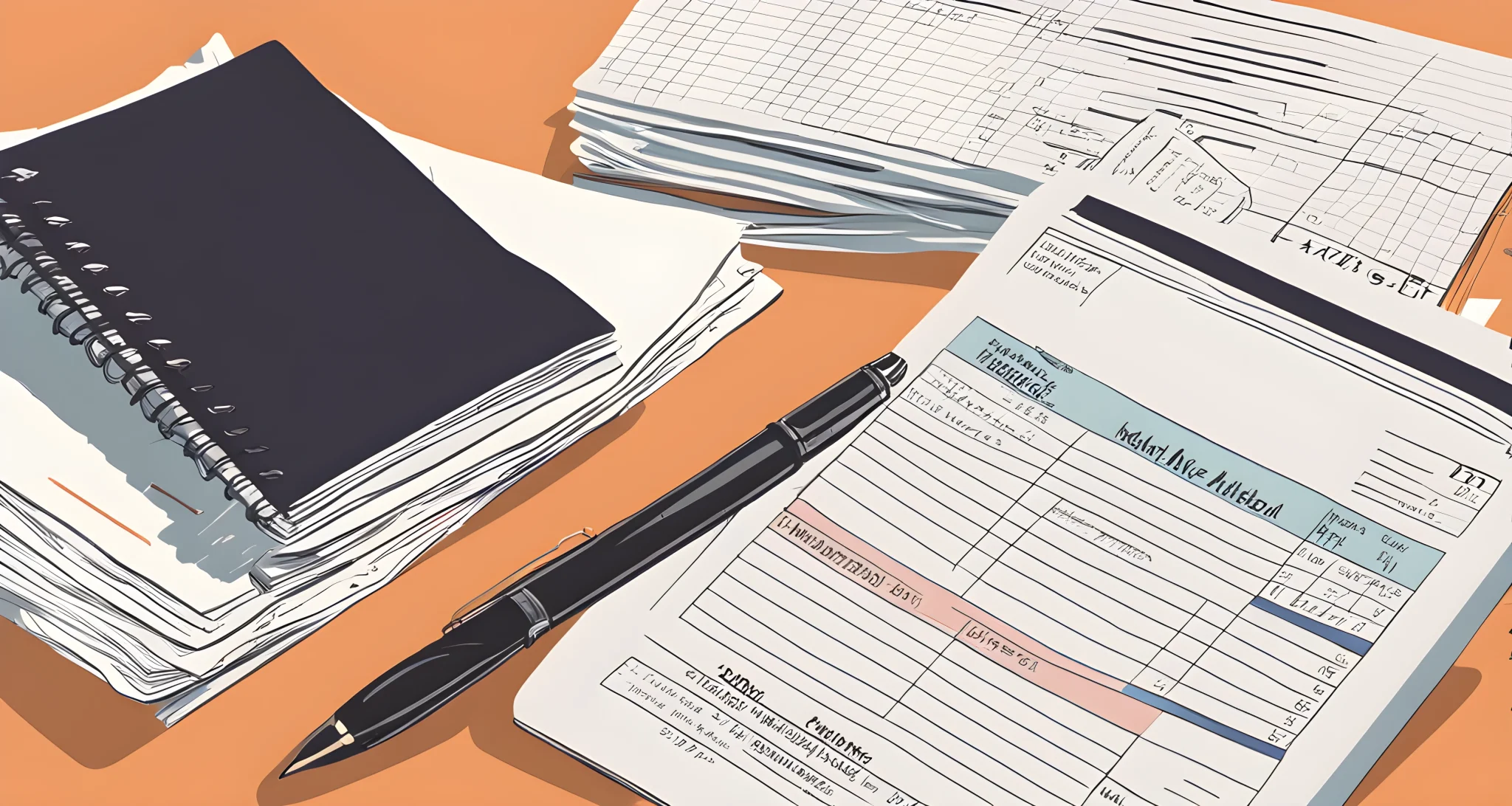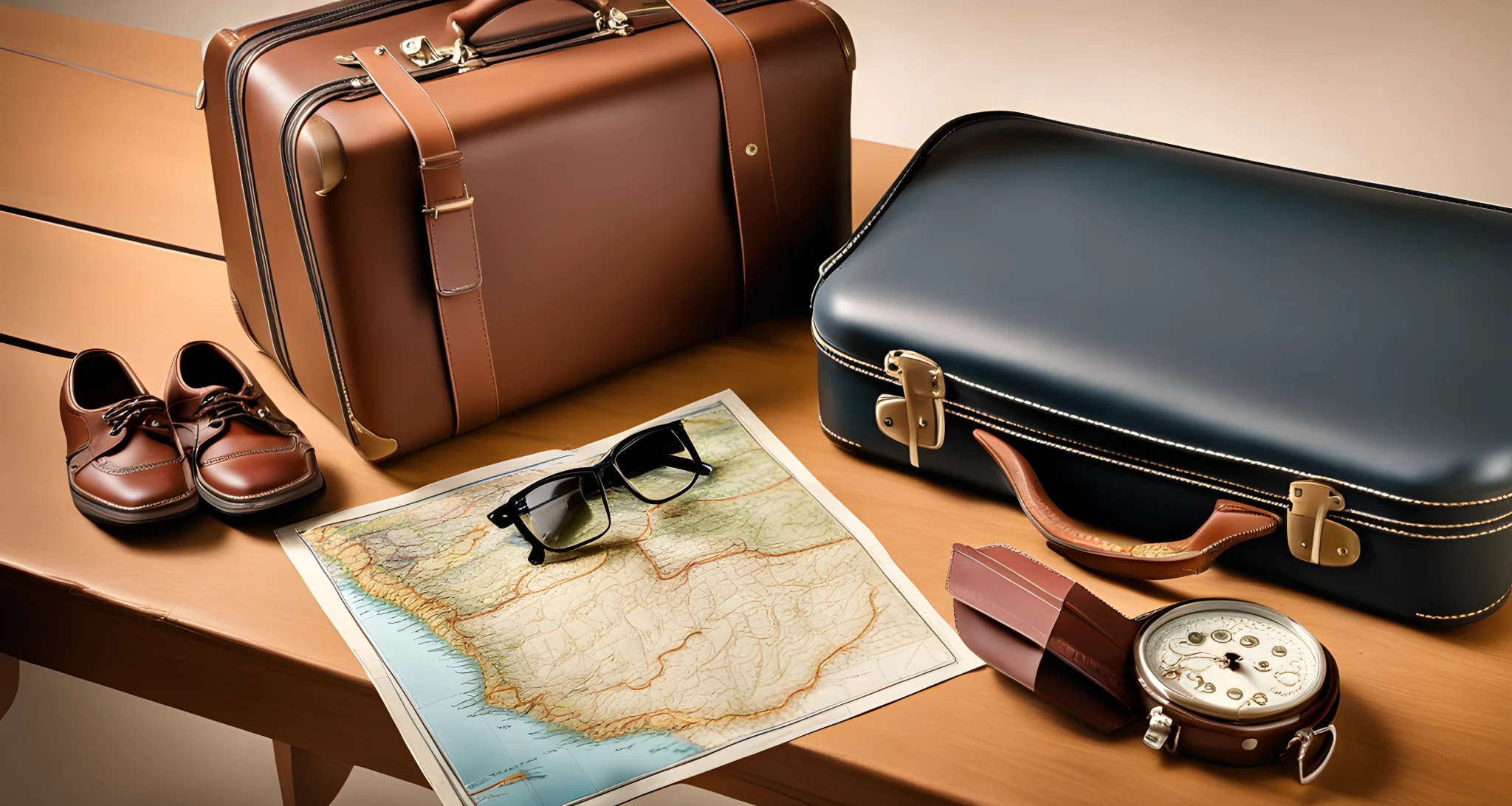Introduction
Traveling with the family can be an enriching experience, but it often comes with a hefty price tag. To make the most of your family travel while staying within budget, strategic planning, budgeting, and resourcefulness are essential. In this article, we will explore the top tips for saving money on family travel, from setting realistic vacation goals to refining your budget through detailed tracking of expenses.
Setting Realistic Vacation Goals
The first step in saving money on family travel is to set a realistic vacation goal. Envision your dream getaway and quantify the associated costs. By breaking down the overall cost into manageable monthly or weekly increments, you can alleviate financial burdens and transform the dream vacation into achievable targets.
Factors to Consider When Planning a Budget Trip
When planning a budget trip with your family, there are several factors to consider. These include transportation costs, accommodation expenses, food and dining, entertainment and activities, and miscellaneous expenses. Each of these factors plays a crucial role in determining the overall cost of your family travel.
Creating a Detailed Travel Budget Spreadsheet
Creating a detailed travel budget spreadsheet is an effective way to keep track of your expenses and stay within budget. This spreadsheet should include categories for each expense, such as transportation, accommodation, food, entertainment, and miscellaneous costs. By listing out all anticipated expenses, you can better plan for each cost and avoid overspending.
Refining Your Budget by Categorizing Expenses
Once you have created a detailed travel budget spreadsheet, it’s important to refine your budget by categorizing expenses. This involves prioritizing essential costs and identifying areas where you can cut back or find more affordable alternatives. By categorizing expenses, you can allocate funds more effectively and make informed decisions about where to spend and where to save.
Detailed Tracking of Expenses
Tracking your expenses in detail is crucial for staying within budget during family travel. Whether it’s keeping receipts or using finance apps to monitor spending, having a clear understanding of where your money is going allows you to adjust your budget accordingly and make necessary changes to stay on track.
Alternative Budgeting Methods
Finally, consider alternative budgeting methods that may work better for your family’s travel style. From using rewards points for travel discounts to opting for off-peak seasons for cheaper rates, there are various ways to save money on family travel without sacrificing the quality of your experience.
By incorporating these top tips for saving money on family travel into your vacation planning, you can enjoy memorable experiences without breaking the bank. Plan ahead, prioritize spending, and stay resourceful to make the most of your family adventures while staying within budget.
For more extended travel budgeting guidance, check out Extended travel budgeting guidance.

Factors to Consider When Planning a Budget Trip
When planning a budget trip, there are several factors to consider in order to make the most of your travel experience without breaking the bank. Here are some key considerations to keep in mind:
Vacation Fund Account
- Creating a vacation fund account with your bank and consistently depositing funds into it can help you keep your travel goals separate from your everyday expenses, making it easier to track and manage your savings.
- This dedicated account will serve as a visual representation of your progress towards your travel goals, motivating you to save more for your trip.
Visual Reminders
- Using visual reminders, such as a picture of your dream vacation spot on the fridge or in your wallet, can also help keep you inspired and focused on your goal.
- These reminders can serve as a constant motivation to stay on track with your budget and make smart spending decisions.
Setting Realistic Goals
- When planning a budget trip, it’s important to set realistic goals based on your financial situation and the cost of living in your desired destination.
- Researching the average costs of accommodation, transportation, food, and activities will help you set a realistic budget for your trip.
Off-Peak Travel
- Consider traveling during off-peak seasons to take advantage of lower prices on accommodations and flights.
- Planning your trip during less popular times can result in significant savings while still allowing you to enjoy the same destinations and experiences.
Flexibility
- Remaining flexible with your travel dates and destinations can also lead to significant cost savings.
- Being open to alternative travel options and destinations can help you take advantage of last-minute deals and discounts.
By keeping these factors in mind when planning a budget trip, you can maximize your savings without compromising on the quality of your travel experience. For more tips on saving money while traveling, check out our article on Inexpensive street food finds where we explore budget-friendly dining options for travelers.

Creating a Detailed Travel Budget Spreadsheet
When it comes to planning a budget trip for your family, creating a detailed travel budget spreadsheet is essential. This will help you keep track of all your expenses and make informed decisions about where to allocate your funds. Here are some tips to help you create an effective travel budget spreadsheet:
-
Consider Alternative Transportation Options: One way to save money on family travel is by considering alternative transportation options. Driving instead of flying can significantly reduce costs, especially for longer distances. Optimal Deals Finding Time Additionally, packing a cooler for road trips and preparing meals in advance can also contribute to reducing expenses.
-
List All Potential Expenses: Start by listing all potential expenses for your trip, including transportation, accommodation, food, activities, and any other miscellaneous costs. This will give you a clear overview of where your money will be going.
-
Research and Estimate Costs: Take the time to research and estimate the costs of each expense category. Look for deals and discounts on accommodation, activities, and transportation to get a better idea of how much you’ll need to budget for each item.
-
Create Categories and Subcategories: Organize your expenses into categories and subcategories to make it easier to track and manage your spending. For example, under the accommodation category, you can have subcategories for hotel stays, Airbnb rentals, or camping fees.
-
Track Your Daily Spending: Once you’re on your trip, make sure to track your daily spending in your budget spreadsheet. This will help you stay on top of your expenses and avoid overspending.
-
Use Budgeting Tools or Apps: Consider using budgeting tools or apps to help streamline the process of creating and managing your travel budget spreadsheet. There are many free options available that can make budgeting easier and more efficient.
By creating a detailed travel budget spreadsheet, you can take control of your family’s travel expenses and make the most out of your vacation without breaking the bank. With careful planning and tracking of expenses, you can enjoy a memorable trip without worrying about overspending.

Refining Your Budget by Categorizing Expenses
Now that you have created a detailed travel budget spreadsheet, it’s time to refine your budget by categorizing expenses. This step is crucial in ensuring that you have a clear understanding of where your money is going and where you can potentially cut costs. Here’s how you can start refining your budget:
-
Categorize Your Expenses: Begin by categorizing your expenses into specific categories such as transportation, accommodation, food, activities, and miscellaneous expenses. This will give you a clear overview of where your money is being allocated and help you identify areas where you may be overspending.
-
Identify Non-Essential Expenses: Take a closer look at your categorized expenses and identify any non-essential items that can be cut from your budget. This could include luxury accommodation options, expensive dining choices, or unnecessary activities. By eliminating or reducing these non-essential expenses, you can free up more money for the essential aspects of your trip.
-
Compare Expenses to Monthly Savings Goal: Refer back to the monthly savings goal that you established earlier and compare it to your categorized expenses. If you find that your expenses are exceeding your savings goal, it’s time to reassess and make necessary adjustments to stay on track.
-
Prioritize Your Expenses: Prioritize your categorized expenses based on what matters most to you and your family during the trip. Allocate more funds towards the aspects of travel that are most important to you, such as memorable experiences or comfortable accommodation.
By categorizing and prioritizing your expenses, you can gain better control over your travel budget and make informed decisions about where to allocate your funds. For more tips on budget travel, check out the Ultimate budget travel hacks article.
In order to maximize your savings for family travel, it’s important to make a commitment to save for the vacation and establish a monthly savings goal. The dedication to consistently depositing funds into a dedicated savings account can be a powerful motivator and can help to keep the travel goal on track.

Detailed Tracking of Expenses
When it comes to budget travel, keeping track of expenses is crucial to staying within your financial limits. Here are some tips for detailed tracking of expenses during your family trip:
-
Use a Travel Budget Spreadsheet: Create a detailed travel budget spreadsheet to record all expenses, including accommodation, meals, transportation, activities, and any unexpected costs. This will help you to stay organized and monitor your spending throughout the trip.
-
Keep All Receipts: Make sure to collect and keep all receipts for every expense incurred during your trip. This will enable you to accurately input the expenses into your budget spreadsheet and ensure that you don’t miss any costs.
-
Record Daily Expenses: Allocate time each day to update your budget spreadsheet with the day’s expenses. This will allow you to see where your money is going in real-time and make adjustments as needed.
-
Track Currency Exchange Rates: If you’re traveling internationally, keep track of currency exchange rates and accurately record all expenses in your home currency. This will give you a clear understanding of how much you’re spending in relation to your budget.
-
Compare Planned vs Actual Expenses: Regularly compare your planned budget with your actual expenditures. This will help you identify any areas where you may be overspending and make adjustments accordingly.
-
Utilize Budgeting Apps: Consider using budgeting apps that can help track your expenses on the go. These apps can provide real-time updates on your spending and help you stay within budget.
By implementing these detailed tracking methods, you can ensure that you have a clear understanding of where your money is going during your family trip. This level of oversight will empower you to make informed decisions about where to spend and where to save, ultimately enabling you to stick within your budget and avoid overspending.
For more tips on budget travel, check out our article on Travel for free tips.

Alternative Budgeting Methods
When it comes to planning a budget trip, there are various alternative budgeting methods that can help you save money while still enjoying a memorable travel experience. Here are some alternative budgeting methods to consider:
Group Travel
- Consider traveling with a group of friends or family members to split the cost of accommodation, transportation, and meals. This can significantly reduce individual expenses and provide the opportunity to benefit from group discounts.
Use Travel Reward Points
- Take advantage of travel reward points and miles offered by credit card companies and airlines. By using these points for flights, hotel stays, and other travel expenses, you can save a substantial amount of money on your trip.
House Sitting or Home Exchange
- Explore house sitting opportunities or home exchange programs, where you can stay in someone else’s home for free in exchange for taking care of their property or swapping homes with them. This can eliminate the cost of accommodation altogether.
Volunteer Work or Work Exchange
- Consider volunteering or participating in work exchange programs during your travels. Many organizations offer free accommodation and meals in exchange for volunteer work or specific skills, allowing you to experience a destination while minimizing expenses.
Budget-Friendly Destinations
- Choose budget-friendly destinations where the cost of living is lower and activities are more affordable. Researching and selecting destinations with favorable exchange rates and lower prices can stretch your travel budget further.
By incorporating these alternative budgeting methods into your travel planning, you can make the most of your funds without sacrificing the quality of your trip.
For more tips on solo budget travel, check out this comprehensive guide on Solo travel budget hacks.
FAQ
What is the first step in saving money for family travel?
The first step is setting a realistic vacation goal, which involves envisioning the dream getaway, quantifying the associated costs, and breaking it down into manageable monthly or weekly increments.
How can i keep my travel savings separate from everyday expenses?
Create a vacation fund account with your bank and consistently deposit funds into it. this dedicated savings account helps you keep your travel goals separate from your everyday expenses, making it easier to track and manage your savings.
What are some alternative transportation options to consider when planning a trip?
Consider driving instead of flying, as it can significantly reduce costs, especially for longer distances. for example, driving from indiana to florida can save you around $1,600 compared to round-trip airfare.
How can i maximize my savings for family travel?
Take advantage of visual reminders, such as a picture of your dream vacation spot, and consider packing a cooler for road trips and preparing meals in advance to help reduce expenses.
